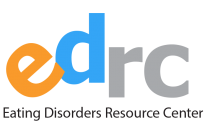Anxiety, disrupted routines and loneliness are fueling people’s food issues as they hunker down during the Covid-19 crisis.
Malinda Ann Hill decided to resume treatment for her eating disorder almost as soon as she shifted to working remotely in March 2020. She knew even before the pandemic that isolation at home would be detrimental to her ongoing recovery from anorexia nervosa. “I had made a really distinct decision not to work from home, so that sent me into a tailspin,” said Ms. Hill, 49, who lives with her daughter in Wynnewood, Pa., and works as an art therapist and bereavement coordinator for a local hospital.
The community and structure of her workplace were helpful for someone who had struggled with disordered eating since her early teens. Sudden loneliness, mounting fears about the unfolding pandemic and a new lack of boundaries between work and home all helped tip off a relapse that Ms. Hill said had already been brewing.
Written by Virginia Sole-Smith.
Click here to read the rest of this article.
If you or someone you know is struggling with an eating disorder, you can learn more about various care options here. EDRC provides support groups and maintains a comprehensive directory of specialized treatment providers in the Bay Area. You can also support EDRC’s mission further by making a tax deductible donation.






